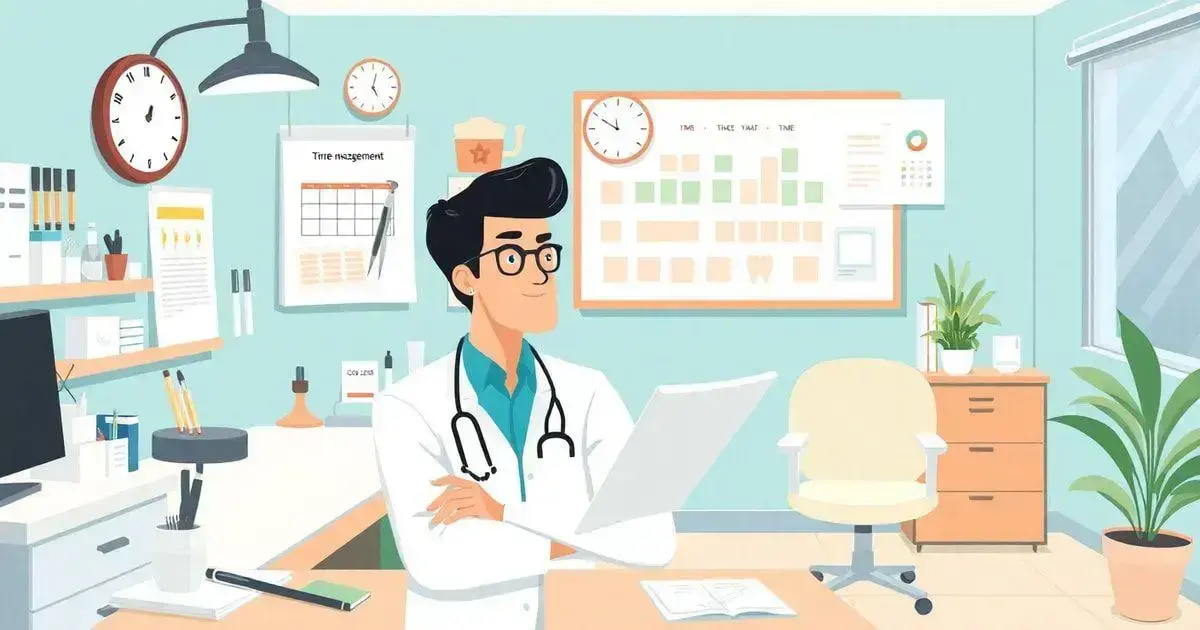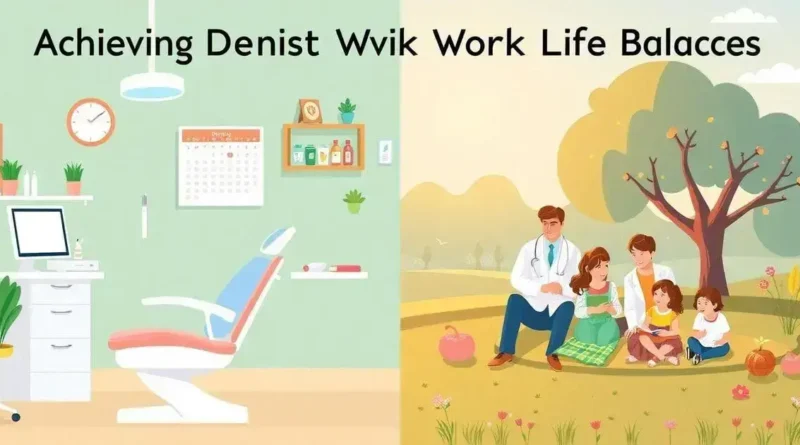Achieving Dentist Work Life Balance: Tips for Success
Understanding Work Life Balance for Dentists
Understanding dentist work life balance is essential for maintaining a sustainable and enjoyable career in dentistry. With the demanding nature of dental practice, many dentists struggle to find a balance between their professional responsibilities and personal life. This imbalance can lead to stress, burnout, and even a decline in the quality of care provided to patients.
To achieve a healthy work life balance, dentists must first identify the key components of their work that can be adjusted. Setting realistic expectations for work hours and patient loads is crucial. It’s important to prioritize time off and establish boundaries that protect personal time.
Additionally, utilizing time management techniques can greatly enhance productivity. By scheduling breaks and delegating tasks when possible, dentists can create a more manageable workflow. Embracing technology, such as appointment scheduling software and patient management systems, can also help streamline processes and free up valuable time.
Moreover, self-care plays a significant role in achieving work life balance. Regular physical activity, mindfulness practices, and maintaining personal hobbies can greatly contribute to overall well-being. Dentists are encouraged to seek support from colleagues and mentorship programs, fostering a community that understands the unique challenges of the profession.
Ultimately, striking a balance between work and life is not just about time; it’s about quality. Understanding work life balance allows dentists to enhance their careers while enjoying personal fulfillment and better patient interactions.
Impact of Work Life Balance on Dental Practices

Dentist work life balance is a crucial topic for dentists who want to improve their professional and personal lives. Achieving a healthy work life balance can lead to numerous benefits for dental practices. A well-balanced life reduces stress, increases job satisfaction, and enhances productivity.
When dentists prioritize their personal time, they are better able to focus on patient care during work hours. Happy dentists tend to create positive experiences for their patients, resulting in better patient retention and referrals. By ensuring time for relaxation and hobbies, dentists can avoid burnout, which can severely affect their practice’s success.
Moreover, implementing flexible scheduling and delegation of tasks can drastically improve Dentist work life balance. Team collaboration allows dental professionals to share responsibilities, ensuring that no one person is overwhelmed. This collective effort can create a supportive work environment, leading to enhanced morale and job satisfaction among staff.
Strategies for Achieving a Healthy Work Life Balance
- Set Clear Boundaries: Designate specific work hours and commit to leaving the office on time whenever possible.
- Prioritize Tasks: Identify urgent and important tasks to focus on what matters most, making efficient use of time.
- Utilize Technology: Use practice management software to streamline patient scheduling and automate reminders to reduce workload.
- Embrace Self-Care Practices: Engage in regular exercise, ensure adequate sleep, and partake in mindfulness activities for better well-being.
- Seek Mentorship and Support: Engage in discussions with peers and join professional groups for emotional support and sharing best practices.
Time Management Techniques for Busy Dentists

Dentist work life balance is crucial for maintaining productivity and well-being. Time management techniques are essential for busy dentists to ensure a productive workday while also taking care of their personal needs. Managing time effectively can lead to better patient outcomes and a happier workplace.
One effective technique is utilizing a priority matrix. This helps in deciding which tasks require immediate attention and which can be scheduled for later. By categorizing tasks based on urgency and importance, dentists can focus on what truly matters, supporting their Dentist work life balance.
Additionally, creating a realistic weekly schedule can aid in visualizing time blocks for patient care, administrative duties, and personal time. Reserving specific times for paperwork and calls ensures that these tasks do not spill over into patient time.
The Role of Technology in Work Life Balance
The Dentist work life balance is a vital aspect for dentists seeking to improve their productivity and personal life. Embracing modern technology can significantly reduce the stresses of managing a busy practice. One key technology is practice management software, which streamlines appointment scheduling and patient communications.
Using electronic health records (EHR) allows dentists to quickly access patient information and history, making consultations more efficient. When information is stored digitally, it reduces paperwork and saves time.
Additionally, many EHR systems have built-in reminders for follow-up appointments and continuing education, helping dentists stay on track without feeling overwhelmed, which contributes to a better Dentist work life balance.
Telehealth is another revolutionary tool. It enables dentists to conduct virtual consultations, allowing for flexibility in scheduling and reducing patient no-shows. This technology not only saves time but also improves patient access to care.
Self-Care Tips for Dentists

One effective self-care tip is to prioritize regular physical activity. Engaging in exercise for at least 30 minutes a day can boost energy levels and reduce stress. Simple activities such as walking, yoga, or swimming can be beneficial.
Another important aspect is to ensure adequate sleep. Dentists should aim for 7-9 hours each night. Quality sleep helps the body recuperate and improves focus and concentration during work hours.
Mindfulness practices, such as meditation or deep-breathing exercises, can also help manage stress. Taking a few minutes each day to clear the mind can lead to better focus and relaxation.
Building a support network is vital as well. Connecting with peers, friends, and family allows dentists to share experiences and feelings, which can alleviate stress.
Lastly, regularly engaging in hobbies and interests outside of work provides a necessary mental break, fostering creativity and happiness. By adopting these self-care tips, dentists can enhance their career satisfaction and personal life.
Creating a Supportive Work Environment
Creating a Supportive Work Environment is critical for enhancing work-life balance among dentists. A positive workplace culture fosters collaboration, reduces stress, and boosts morale, contributing to a better Dentist work life balance.
Dentists should start by promoting open communication among team members. Encouraging staff to share their ideas and concerns can create a more inclusive atmosphere.
Another important aspect is recognizing and celebrating achievements. Acknowledging both small and big victories helps build a sense of community and encourages everyone to excel. Simple acts like shout-outs during meetings or appreciation notes can go a long way.
Additionally, providing flexible scheduling options can accommodate the personal lives of dental staff. Allowing employees to adjust their schedules can lead to greater satisfaction and loyalty.
Creating a relaxing break area can also significantly impact the work environment. A comfortable space for staff to unwind encourages taking necessary breaks throughout the day, reducing burnout.
Finally, investing in team-building activities can strengthen relationships among coworkers. These activities can range from professional development workshops to social gatherings outside of work. By focusing on a supportive work environment, dental practices can enhance both staff happiness and patient care.
